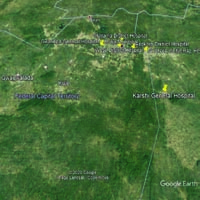Knowledge, attitude and willingness to accept the RTS,S malaria vaccine among mothers in Abuja, Nigeria

All claims expressed in this article are solely those of the authors and do not necessarily represent those of their affiliated organizations, or those of the publisher, the editors and the reviewers. Any product that may be evaluated in this article or claim that may be made by its manufacturer is not guaranteed or endorsed by the publisher.
Authors
Malaria constitutes a major public health challenge and Nigeria contributes hugely to the global burden. In recent times, there has been a massive scale up of all interventions for evident impact. One of the novel preventive measures being considered is the RTS,S malaria vaccine. The objective of this study was to assess mothers’ knowledge, attitude, and practices to malaria and its prevention as well as mothers’ willingness to accept the RTS,S/AS01 malaria vaccine. A cross-sectional study design was used to administer questionnaires to 180 mothers within six public secondary health facilities in Abuja, Nigeria. About 30% (36/180) of respondents were aware of malaria vaccines but only four percent (7/180) had heard of RTS,S. Young maternal age (OR, 2.4; 95% CI, 1.09-5.28; P = 0.03), self-employment (OR, 2.55; 95% CI, 1.04-6.28; P = 0.04) and formal employment (OR, 3.74; 95% CI, 1.17-11.99; P = 0.03) were associated with no prior knowledge of malaria vaccine. Ninety-one percent (163/180) had a positive attitude to malaria vaccine and 98% (176/180) were willing to allow their child(ren) to be immunized with RTS,S despite the efficacy of the vaccine, route of administration and number of doses. We concluded that knowledge of malaria preventive measures does not correlate with knowledge of RTS,S. Although willingness to accept RTS,S is high, consistent targeted messaging on RTS,S would be required to improve community knowledge and attitude prior to implementation to ensure maximum uptake.






